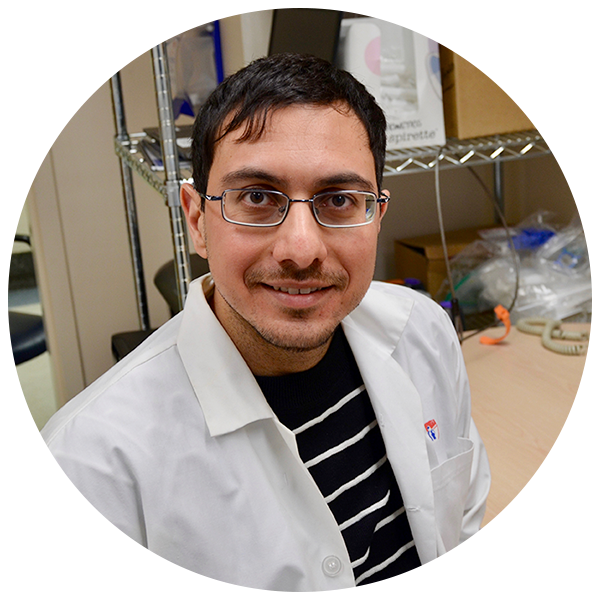
JDRF is the leading charitable funder of research into type 1 diabetes in Canada, with a focus on research that will help improve lives today, and lead to disease prevention and cures.

JDRF Canada is pleased to continue supporting research led by McGill scientist Dr. Ahmad Haidar. Haidar and his team are looking at ways to improve the quality of life of people living with type 1 diabetes (T1D) using a novel insulin-plus-pramlintide artificial pancreas that may alleviate the need for carbohydrate counting.
Carbohydrate counting is the process of counting the number of carbohydrates in a meal – something that people living with T1D need to do every time they eat in order to be able to calculate the appropriate and safe amount of insulin needed for blood sugar control. Carbohydrate counting can however become burdensome as it requires an extensive knowledge base and detailed calculations, made multiple times a day. Haidar and his team aim to develop an automated insulin delivery system that can minimize this burden for people living with the disease.
A closed-loop system, or “artificial pancreas”, automates the delivery of insulin based on the blood sugar levels obtained from continuous glucose monitors. Evidence shows that individuals using a closed-loop system are often less burdened by the decision-making process of daily insulin management and can benefit from improved glucose control, fewer hypoglycemic episodes, and a better quality of life.
Haidar and his research team plan to study a closed-loop system that delivers both insulin and pramlintide. Pramlintide is a medication that resembles a natural hormone produced by healthy beta cells called amylin, which slows the movement of food through the stomach. This hormone can blunt the extent to which sugars are broken down, allowing for a meal to less severely elevate blood sugar levels. The team’s previous work showed that such a system was safe and effective in people with T1D. Now, they want to explore whether a combination of a fast-acting insulin and pramlintide can eliminate the need for carbohydrate counting without compromising glycemic control.
Haidar will examine how this closed-loop system will affect target blood sugar levels in adults and adolescents, as well as these individuals’ quality of life, in a randomized controlled trial. The study will be two weeks long, will take place outside of a clinic setting, and will compare a system that delivers both insulin and pramlintide versus a system that delivers insulin on its own. The study will also compare traditional carbohydrate counting techniques against a simple meal announcement notification.
JDRF is pleased to support two more years of Haidar’s ongoing work with a $760,000 USD grant in this important area of diabetes management, and thanks its donors for their continued support in T1D research.



